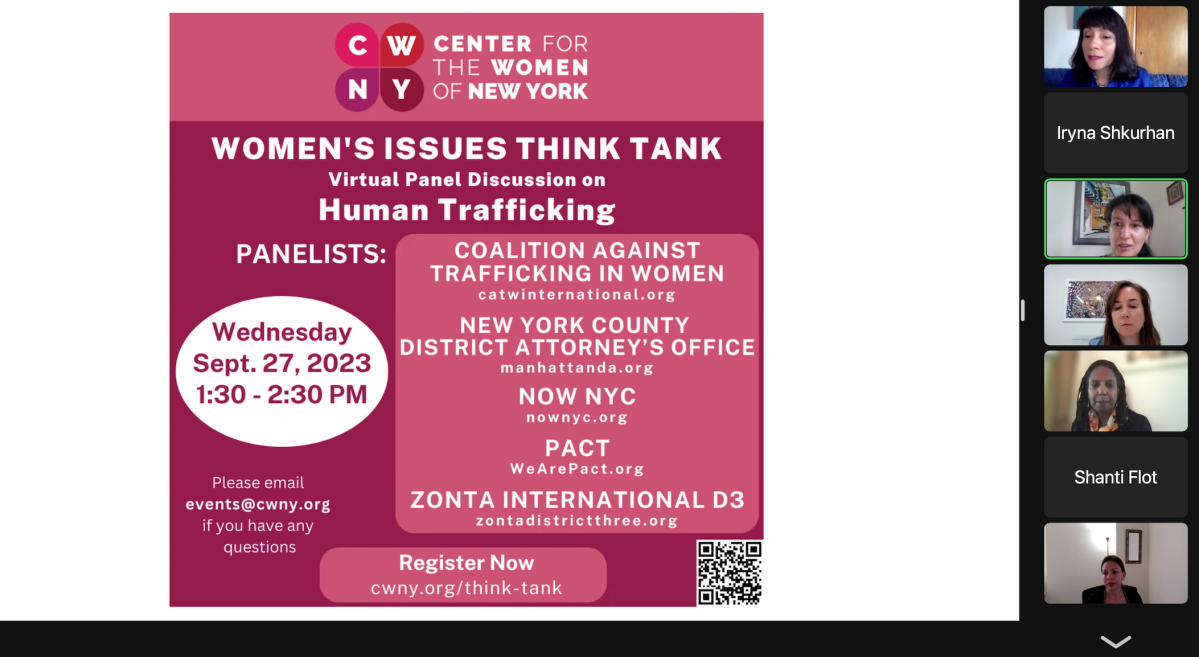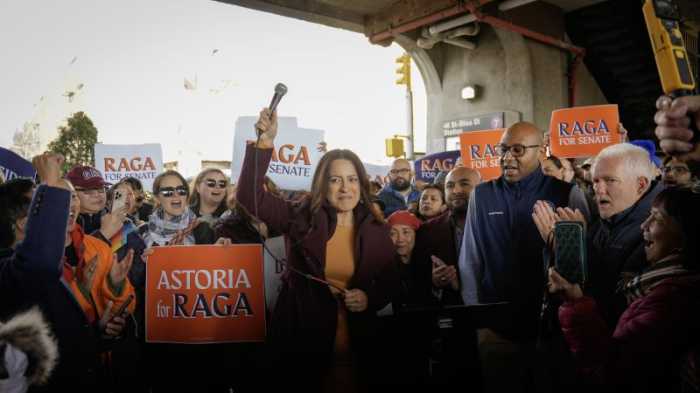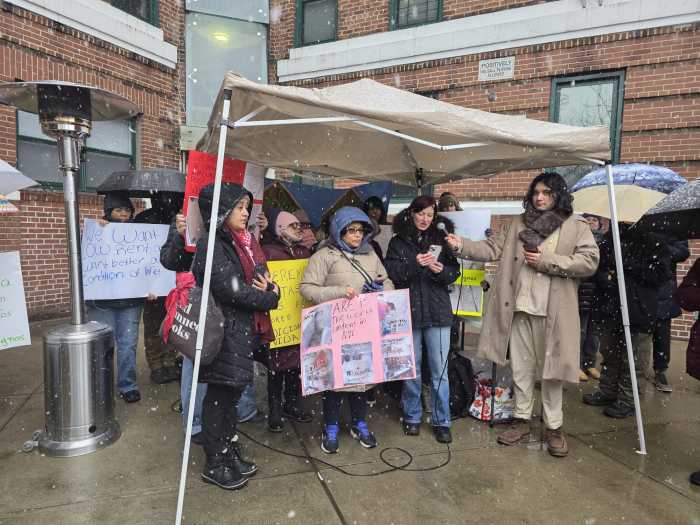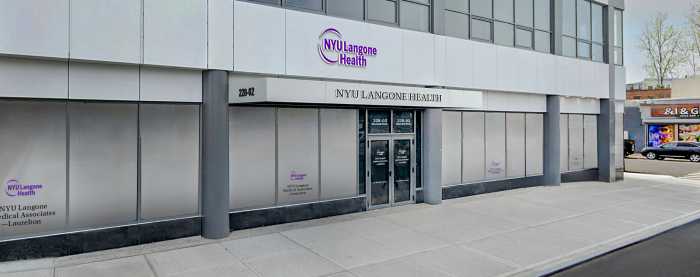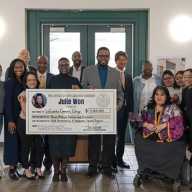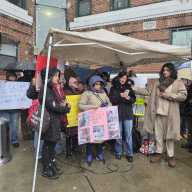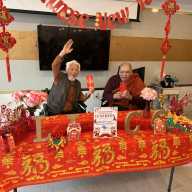At a virtual think tank discussion on human trafficking organized by Bayside’s Center for Women of New York, experts pointed out that migrant women and children are at risk.
More than 118,000 migrants have arrived in New York City since April 2022. And as the city struggles to provide them with adequate resources without exacerbating the existing economic strain, a growing market for sex work adds another layer to their vulnerability.
On Wednesday, Sept. 27, CWNY organized a virtual think tank panel to discuss the ongoing issue of human trafficking. The panel featured representatives from the Coalition Against Trafficking Women, NOW NYC, PACT, Zonta International District 3 and the Manhattan District Attorney’s Office. Several of the panelists advocated for increased attention to protect the city’s newest arrivals to over two dozen attendees.
“We have tens of thousands of vulnerable women here in New York now who are seeking asylum. Those women are being targeted. This is a situation that we’ve got to get in front,” said Sonia Ossorio, Executive Director of NOW NYC. “If you go back 15 years ago, there were these open air prostitution zones across New York and it was really horrible. That is all back now. And it is a reflection of the pressure that families are under economically.”
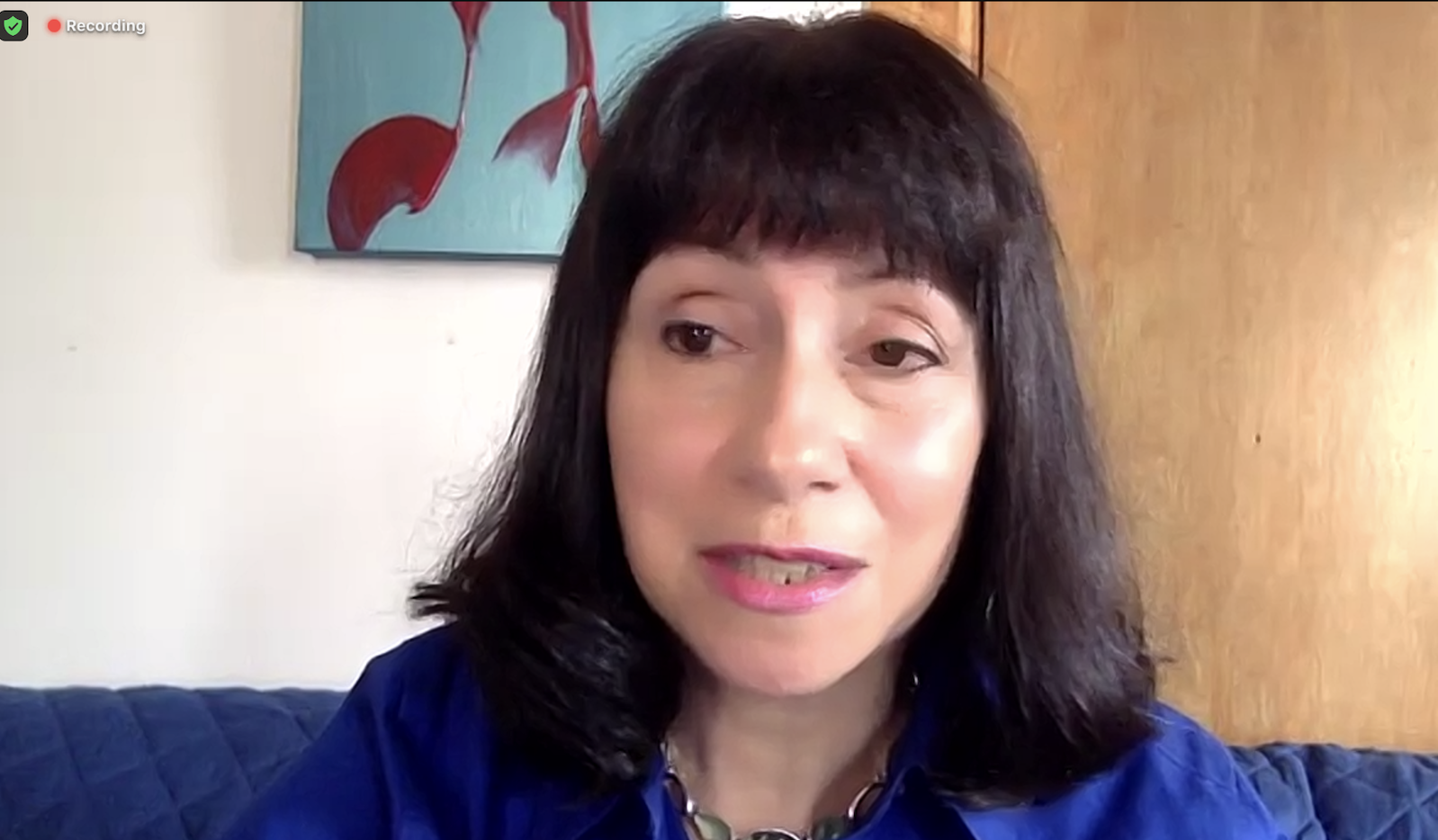
Despite New York being the first U.S. state to enact strong anti-tracking legislation with the New York Human Trafficking Act of 2007 – which penalizes traffickers for using manipulation tactics and targets sex buyers – it ranked fourth in human trafficking cases in 2023.
“We understand that because we live in a part of the country where diversity is very strong, that it’s very easy for migrant women and children to be in plain sight and be subjected to horrific forms of violence that we just don’t see or recognize,” said Lisa Burton, governor of Zonta District 3, an organization working to eliminate violence against women.
The Center for the Women of New York advocates for gender equality and offers support to women through workshops and classes on financial literacy, career development, caregiving and sustainable gardening. They also spread awareness and support victims of domestic violence and human trafficking. A range of events are regularly held at their two locations in Queens Borough Hall and Bayside, as well as virtually.
“We only see this crisis growing and growing,” said Nora Hennick, communications director of the Coalition Against Trafficking in Women, a longtime international organization working to end human trafficking and commercial sexual exploitation. She pointed out that human trafficking, a form of modern slavery, is a “highly gendered crime” that disproportionately affects women.
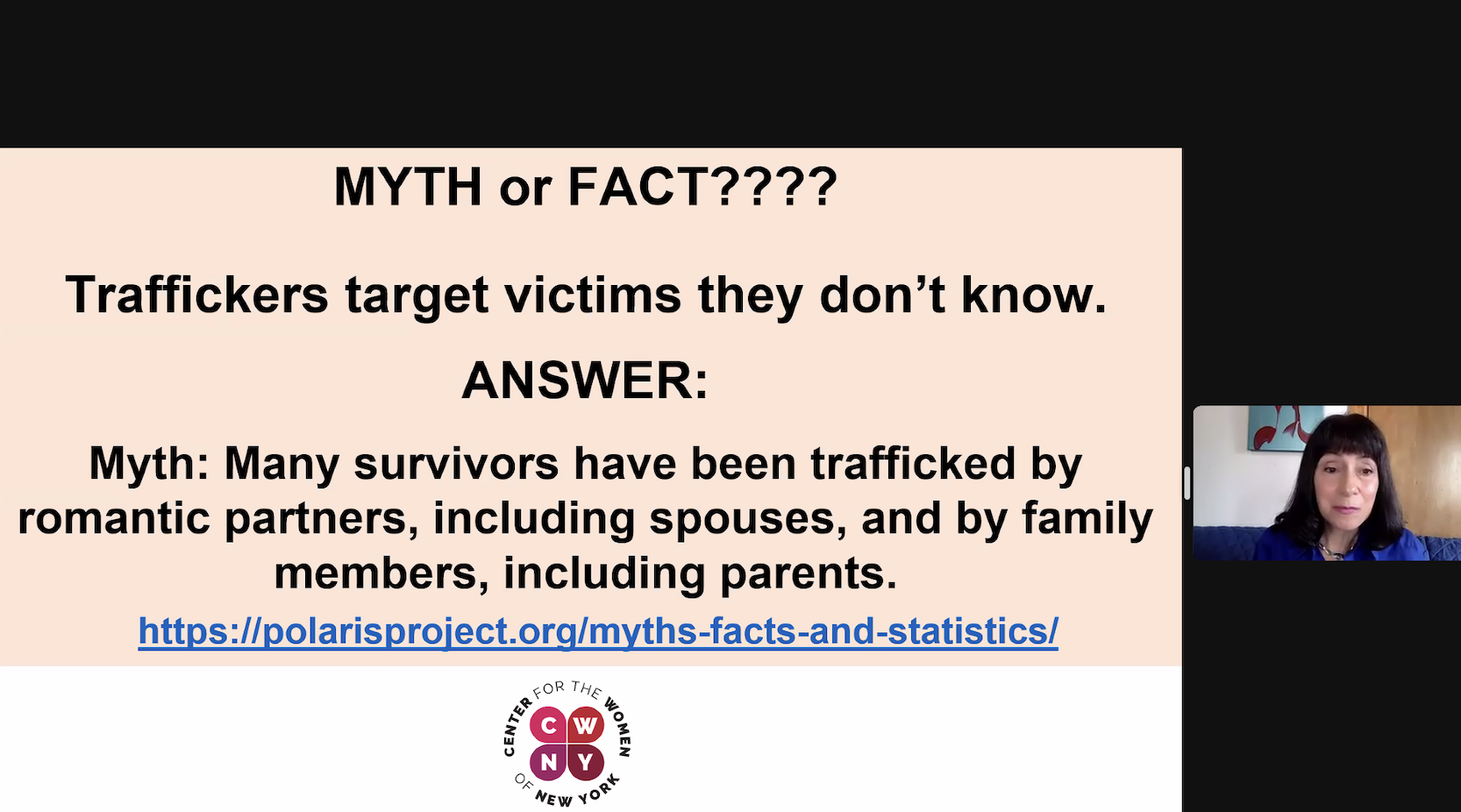
The panelists discussed two pieces of state legislation seeking to end human trafficking, with countering political approaches. They also worked to dismantle pre-existing myths on trafficking and eliminate existing stereotypes, one being that traffickers target victims they don’t know.
Sex Trade Survivors Justice and Equality Act, also known as the Equality Model, has the goal of ending the arrest and incarceration of sex workers, funding their support and exit services and supports clearing their past convictions. It also strives to maintain laws against sex tourism, brothel owning and promoting prostitution. It was introduced by Manhattan state Sen. Liz Krueger and is co-sponsored by state Sen. John Liu, who represents Flushing and Bayside.
On the other hand, Stop Violence in the Sex Trades Act, sponsored by Brooklyn state Sen. Julia Salazar seeks to fully decriminalize the sex trade without the additional regulation that supporters of the Equality Model are pushing for. Both bills remain in the early stage of the legislative process.
Lucy Brown, a grant manager and educational associate at PACT informed listeners that there are three main elements of prevention to combat child trafficking: community resources, healthy relationships and internet safety. They encouraged parents to have open conversations with their children about these topics.
“If it’s not us who speaks up for these victims, nobody else will,” added Ossorio.

